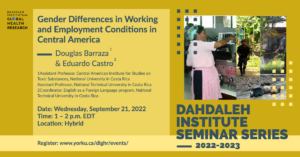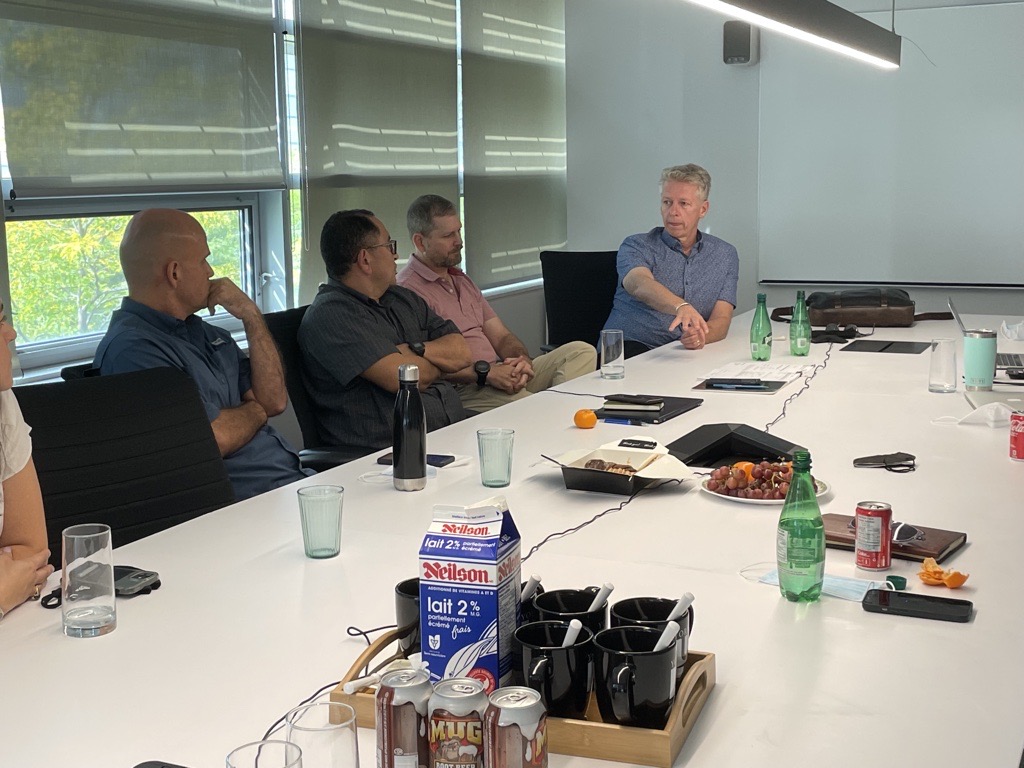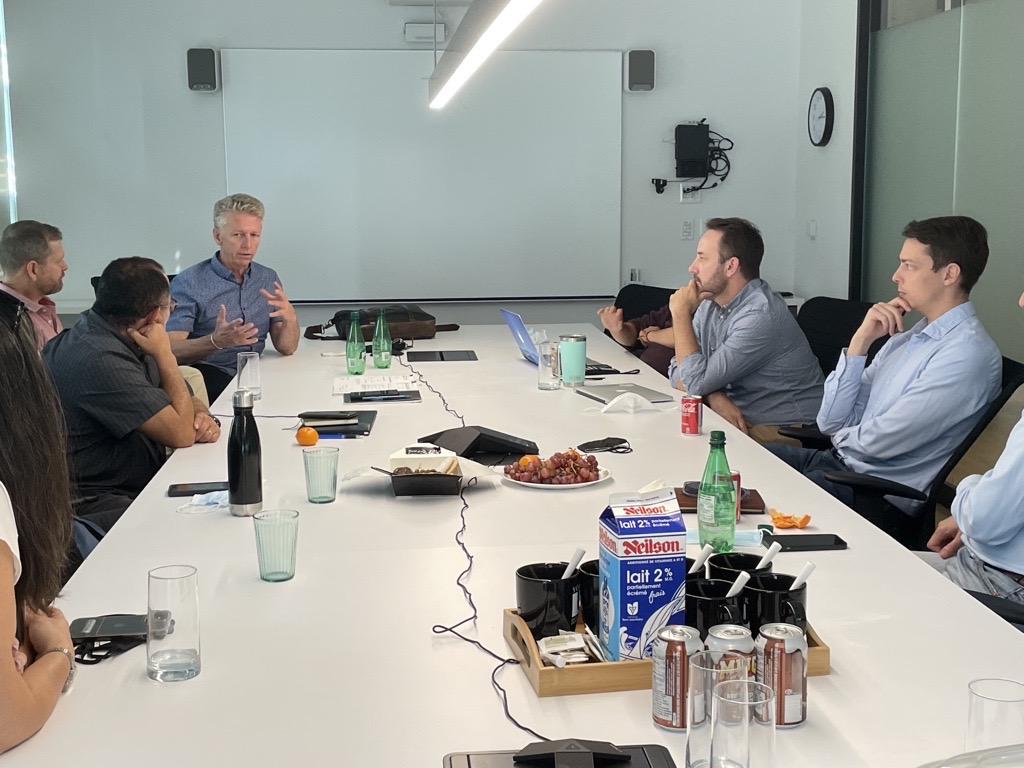Post
Published on June 29, 2023

On September 21, 2022, Douglas Barraza and Eduardo Castro examined structural gender inequality in Central America. Douglas introduced survey results about the labour conditions across various countries in Central America and how these circumstances have resulted in higher rates of unemployment among women. Some countries such as Panama and Costa Rica fare better comparatively (e.g., better employee benefits such as two weeks of paid vacation, pensions, resting or sick days, and maternity and paternity leave) however, much improvement is still required.
Between 2015 to 2019, the employment rate of women has increased slightly, but the employment rate for men is still nearly double that of woman. Eduardo added that not only is there a disparity between employment opportunities between men and women, but there is also a division between citizens and migrant workers where immigrant workers often work in unsafe conditions with fewer benefits.
Douglas and his research team found that regardless of gender and status, all workers are working longer hours. To earn a minimum wage of $400 USD per month, many are working around 40 to 60 hours a week. These workers risk compromising their health working overtime in dangerous work conditions. His research measured the safety of work environments with a criterion that included items like exposure to elevated noise, exposure to toxic chemicals, continuous repetitive movement, requirement to work fast, union health and safety offices at work, risk-prevention services, and the workers perceived level of health. Despite the efforts, more progress needs to be made towards improving the working conditions for all citizens regardless of gender and immigration status.
Watch the seminar presentation below:
Connect with Douglas Barraza and Eduardo Castro
Themes | Global Health & Humanitarianism |
Status | Active |
Related Work |
N/A
|
Updates |
N/A
|
People |
N/A
|
You may also be interested in...
Four York researchers receive grants for knowledge mobilization projects
Four York University researchers have been awarded 2023 Connection Grants from the Social Sciences and Humanities Research Council (SSHRC) for various knowledge mobilization projects, ranging in topic from local Indigenous history education to youth affected ...Read more about this Post
Water Safety Research in Cambridge Bay, Nunavut is Off to a Successful Start
In mid-April, Dahdaleh graduate scholar Caroline Duncan, Dahdaleh faculty fellow Professor Stephanie Gora, and Audrey Tam from the Safe and Sustainable Water Research Group at York University arrived in Cambridge Bay to hold the first ...Read more about this Post
Global Strategy Lab awarded $8.7M to create AMR Policy Accelerator
Antimicrobial resistance (AMR) is one of the greatest threats humanity faces today. Decades of use, overuse and misuse of antimicrobials in animals and humans has led to the development of bacteria, viruses, fungi and parasites ...Read more about this Post


